News
-
 Psychology
PsychologyKids today are waiting longer than ever in the classic marshmallow test
Preschoolers wait longer for extra treats than they used to. What does it mean?
By Bruce Bower -
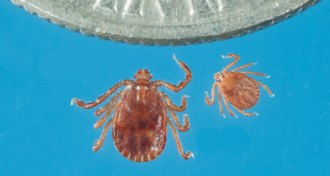 Animals
AnimalsThis invasive tick can clone itself and suck livestock dry
The newly invasive longhorned tick, now found in four continental U.S. states, spreads human diseases in its native Asia. Here, it’s mostly a threat to livestock — so far.
-
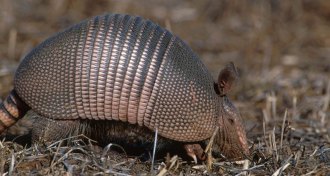 Life
LifeLeprosy lurks in armadillos in Brazil’s Amazon
Armadillos in the Brazilian Amazon are often infected with leprosy, which they may pass to people.
-
 Animals
AnimalsWhy some mammal species don’t have descended testicles, but most do
New research studying genetic vestiges suggests that descended testicles are as ancient as the first placental mammal.
By Angus Chen -
 Quantum Physics
Quantum PhysicsA tiny version of this physics toy is revealing quantum secrets
Scientists created a quantum Newton’s cradle to study thermal equilibrium.
-
 Neuroscience
NeuroscienceA brain chemical tied to narcolepsy may play a role in opioid addiction
Long-term use of opioids such as heroin is linked to having more brain cells that release a chemical that regulates wakefulness and arousal.
-
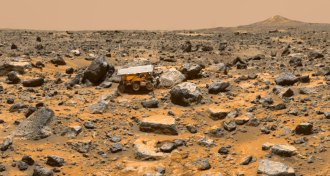 Planetary Science
Planetary ScienceMars got its crust quickly
The Martian crust had solidified within 20 million years of the solar system’s formation.
-
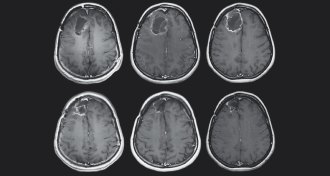 Health & Medicine
Health & MedicinePoliovirus treatment helped patients with deadly brain tumors live longer
A genetically modified poliovirus appears to help fight brain cancer, a small, early-stage clinical study suggests.
-
 Earth
EarthThis volcano revealed its unique ‘voice’ after an eruption
Identifying patterns in a volcano’s low-frequency sounds could help monitor its activity.
-
 Health & Medicine
Health & MedicineNew studies add evidence to a possible link between Alzheimer’s and herpesvirus
Researchers saw higher levels of herpesvirus in the brains of Alzheimer’s patients, which may contribute to plaque formation.
-
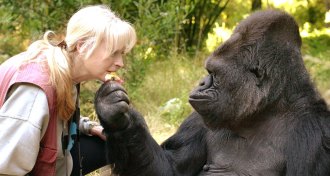 Anthropology
AnthropologyKoko the gorilla is gone, but she left a legacy
An ape that touched millions imparted some hard lessons about primate research.
By Bruce Bower -
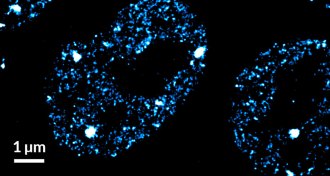 Life
LifeIt may take a village (of proteins) to turn on genes
Clusters of proteins transiently work together to turn on genes, new microscopy studies of live cells suggest.